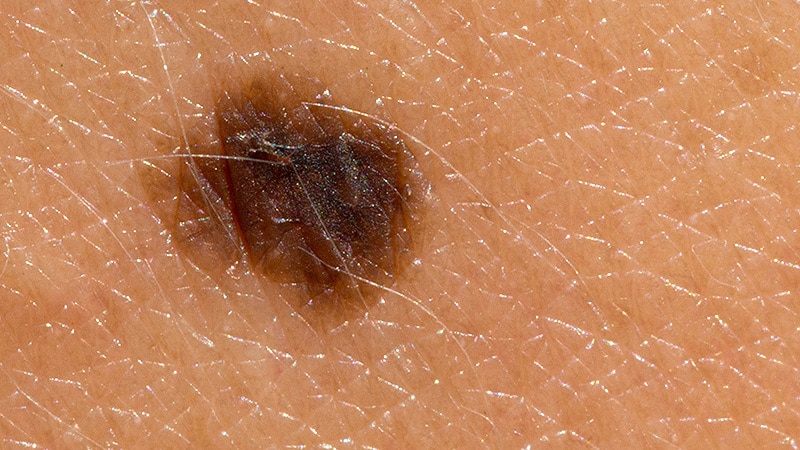No Overall Survival Benefit for Adjuvant Treatment of Stage III Melanoma
Core Concepts
Adjuvant treatment for stage III melanoma may not improve overall survival.
Abstract
The content discusses the lack of overall survival benefit from adjuvant treatment for stage III melanoma based on a review of cases in Sweden from 2016 to 2020. The study compared patients before and after the approval of adjuvant treatments and found no significant difference in overall survival rates. Experts suggest the need for better tools to identify patients who may benefit from adjuvant treatment.
Key Highlights:
- Adjuvant treatment is standard practice for stage III melanoma.
- No improvement in overall survival was observed in Swedish cases.
- Phase III trials have not reported overall survival data.
- Experts emphasize the need for further studies and better patient selection tools.
Customize Summary
Rewrite with AI
Generate Citations
Translate Source
To Another Language
Generate MindMap
from source content
Visit Source
www.medscape.com
No OS Benefit for Adjuvant Treatment of Stage III Melanoma
Stats
"Two-year OS rates were 84.3% in the pre-approval group vs 86.1% in the post-approval cohort."
"The study was powered to detect a 2-year survival difference of 5% or more."
Quotes
"We believe that this finding is of potential interest to the melanoma community."
"If further studies confirm that there is no long-term impact on overall survival, certainly these adjuvant therapies need to be reconsidered as a standardized recommendation."
Key Insights Distilled From
by M. Alexander... at www.medscape.com 06-13-2023
https://www.medscape.com/viewarticle/993133
Deeper Inquiries
What are the implications of the lack of overall survival benefit for current treatment guidelines?
The lack of overall survival benefit for adjuvant treatment in stage III melanoma has significant implications for current treatment guidelines. Since adjuvant therapy is commonly recommended based on its ability to improve recurrence-free survival, the absence of a clear impact on overall survival challenges the rationale for its widespread use. This finding suggests that the potential benefits of adjuvant treatment may not extend to improving long-term survival outcomes for patients with stage III melanoma. As a result, there is a need to reevaluate and potentially revise existing guidelines to ensure that treatment recommendations are based on robust evidence of improved overall survival rather than solely on recurrence-free survival data.
Is there a possibility that longer follow-up could reveal an overall survival benefit from adjuvant treatment?
While the current study had a relatively short follow-up period, there is a possibility that longer follow-up could reveal an overall survival benefit from adjuvant treatment in stage III melanoma. Longer-term data collection and analysis may provide a more comprehensive understanding of the impact of adjuvant therapy on overall survival outcomes. It is essential to continue monitoring patients over an extended period to assess any potential delayed benefits or changes in survival rates that may become apparent with time. Therefore, further research with extended follow-up periods is necessary to determine definitively whether adjuvant treatment offers a survival advantage in the long term.
How can advancements in genetic profiling and liquid biopsies improve patient selection for adjuvant treatment?
Advancements in genetic profiling and liquid biopsies hold promise for improving patient selection for adjuvant treatment in melanoma. By utilizing genetic profiling techniques, healthcare providers can identify specific genetic markers or mutations that may indicate a patient's likelihood of benefiting from adjuvant therapy. This personalized approach to treatment selection can help tailor interventions to individual patients based on their unique genetic characteristics, potentially enhancing treatment efficacy and minimizing unnecessary exposure to side effects.
Similarly, liquid biopsies offer a non-invasive method for monitoring disease progression and treatment response by analyzing circulating tumor DNA in the blood. These tests can provide real-time information on tumor dynamics and genetic changes, allowing for more precise and timely adjustments to treatment strategies. By integrating genetic profiling and liquid biopsies into clinical practice, healthcare providers can better stratify patients based on their molecular profiles and disease status, ultimately optimizing the selection of candidates who are most likely to benefit from adjuvant treatment.
0
